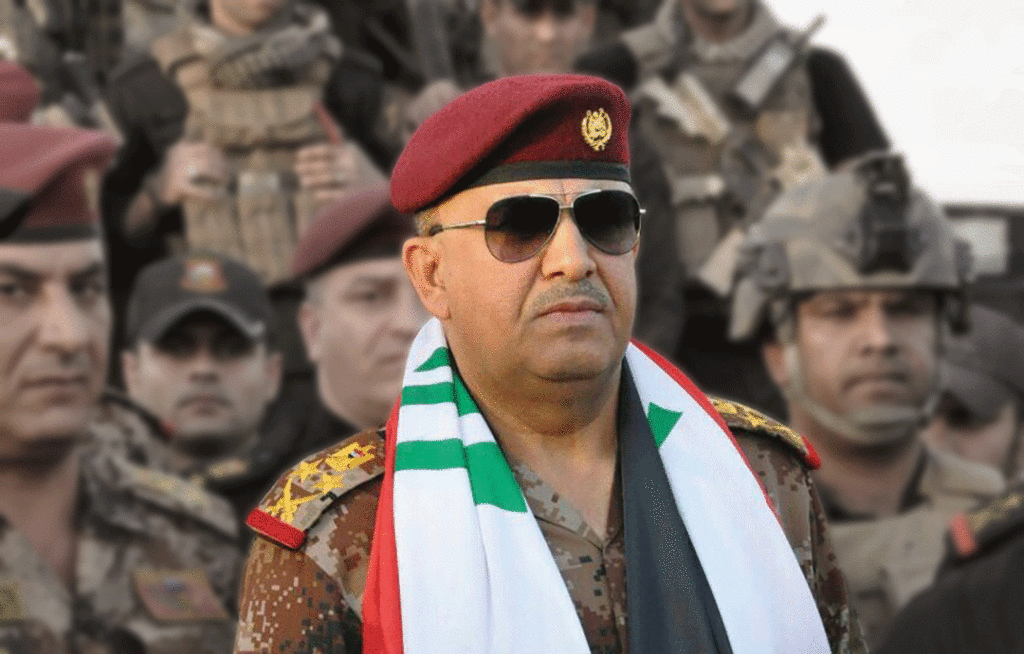I am very grateful to our U.S. Central Command friends for inviting me to present this special edition of Unipath, which addresses Iraq’s defeat of Daesh. I was honored to command the joint forces fighting these terrorists from 2014 to the end of 2016, during the ferocious battles in places like Mosul, Anbar and the Baghdad region.
During that critical phase, we worked with coalition forces around the clock to rebuild the Army on a professional basis and develop plans to liberate cities and fight gangs near the capital. In a short period, we cleared the areas near Baghdad and began the liberation of Saladin, Ramadi and Fallujah from the abomination of terrorism.
We have focused not only on destroying military capabilities, but on preserving the lives of citizens and respecting human rights. Sometimes we would endanger ourselves for the safety of civilians. This made the liberation process slow and complicated. Thankfully, we freed Fallujah and Mosul with as little loss of life and infrastructure as possible.
Iraq has emerged from this decisive battle triumphant and strong, and defeated the enemy’s plans to fragment the nation by igniting sectarian war between its ethnicities. Their sick dreams were broken on the wall of unity and peaceful coexistence that had existed in this land forever.
The heroes in the Iraqi Security Forces and the Arab tribes fought fiercely to liberate the land from terrorism and sacrificed themselves for the safety of innocent people trapped in the cities. These men — who have rejected all forms of terrorism and believe that Iraq will prevail in all its diversity — have been greeted with love and pride. The world respects your sacrifices and heroism; you honor your profession and perform your duties with fidelity.
After this overwhelming military victory over the bandit gangs, we face a great challenge to ensure they don’t reappear under new labels. Millions of citizens have been brainwashed and terrified by the carnage, the destruction of the car bombs and the mass executions. These include many children and adolescents. It is necessary to nurture this segment of society to reduce extremism and prevent the formation of sleeper cells. At the same time, we must hold accountable those who incite violence and extremism, whether at political rallies, mosques or schools. Such negative discourse directly impacts the street.
The solution to terrorism is complex and difficult and not limited to the military. Daesh originated with the remnants of al-Qaida in Iraq who were stalked by the security forces or lodged in detention centers. They found a haven in Syria, where they launched a campaign in social media and Friday sermons to deceive young people with the notion of a “caliphate.” We have repeatedly issued warnings about the dangers of terrorism in conflict-ridden areas. We must therefore work as a team with all brotherly and friendly forces to prevent terrorist groups from exploiting a fertile environment in ungoverned spaces.
We in the counterterrorism apparatus have worked hard to restructure our forces to perform the tasks entrusted to us. Since 2014 we have been fighting, advancing and liberating cities as a regular military force. But the duties of the Counter-Terrorism Service extend to tracking and dismantling terrorist networks and pursuing those who promote, finance and lead them. This task is not limited to Iraq. We work with our brothers in neighboring countries and our partners abroad to share intelligence about terrorist networks. It is a global network that requires international cooperation to dismantle it.
The world has witnessed a technological revolution that has brought many benefits to humanity, such as science and medicine, and at the same time has made us more vulnerable to the dangers of terrorists who spread their sick thoughts on social networking pages or plan simultaneous attacks on innocents. Terrorists use modern technology to spread extremist ideas and recruit members. So we must keep abreast of technological developments, acquire the latest technology in monitoring suspicious calls, locating mobile phones, conducting aerial surveillance and other modern techniques for hunting terrorists.
The dangers of terrorism have made armies adopt new unconventional tactics to counter these threats. To try to deplete military forces, terrorist gangs depend on speed, the use of light arms and hiding among populations. We must focus on building an unconventional force with light armaments and modern techniques that can fight these gangs under all circumstances and have the flexibility and speed to mobilize within an hour. We continuously develop our technical and tactical capabilities, participate in international exercises and share experiences of mutual benefit.
In conclusion, I would like to thank our international partners who provided support, advice and air support to our forces during the liberation battles. Air support and the exchange of intelligence helped preserve the lives and property of citizens and limited damage in the liberated cities. They worked with us wholeheartedly as a team, at command centers and on the training grounds. We have all shared in the fruits of this partnership.

